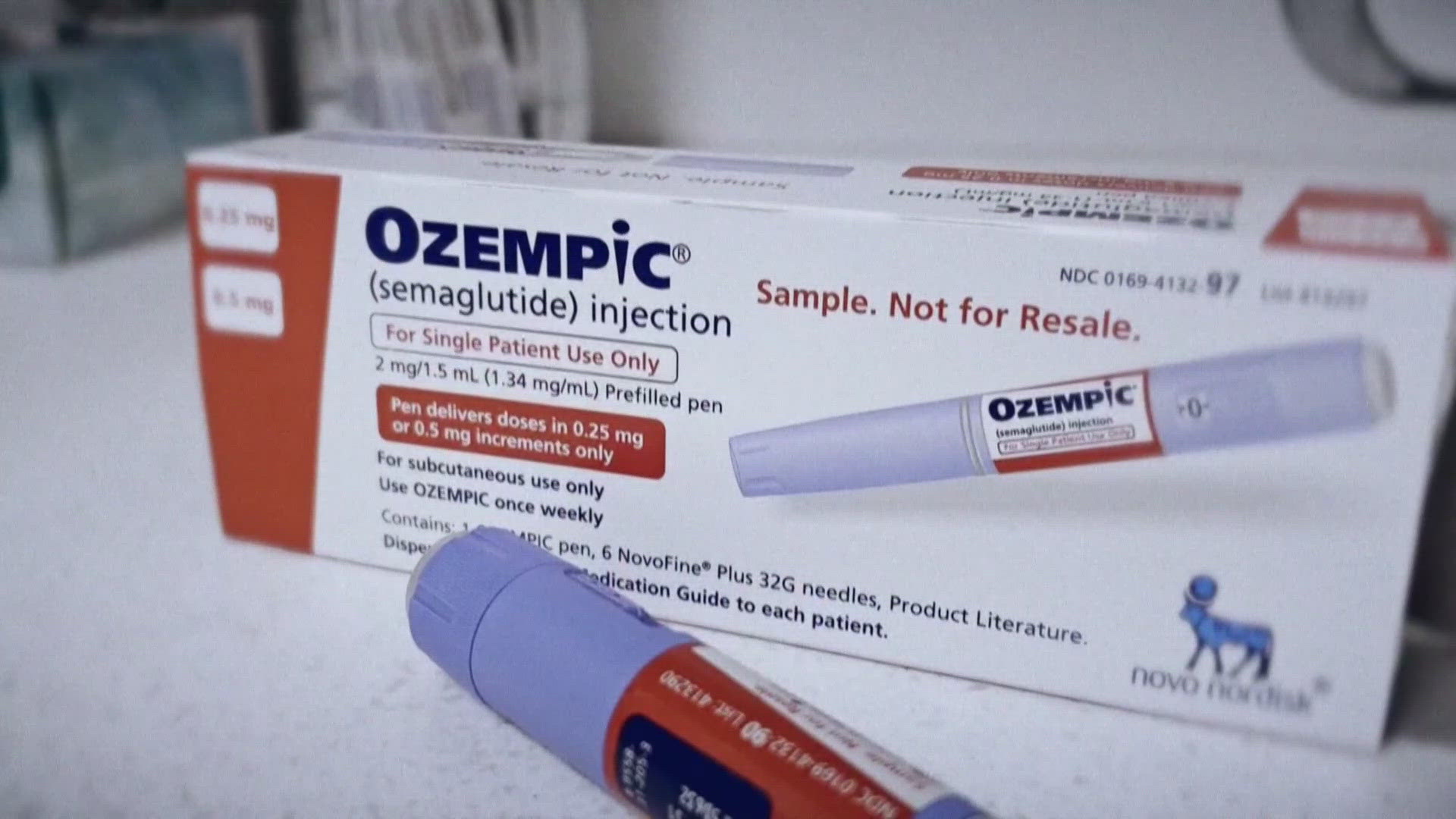COLLEGE STATION, Texas — For Brazos Valley resident Charles Rogers, getting his diabetes medication has been no walk in the park.
"I call in the prescription and my pharmacist sends an email when they get it filled," Rogers told 6 News. "After two or three days when it should be filled, I go...'Okay, is it going to be there?' In most cases, it's on back order. They can't get it and so we have to contact my doctor and punt."
Rogers was on Trulicity for years but it was phased out and Mounjaro was phased in. At first, Rogers said his insurance wouldn't cover it.
"The insurance company controls your medical care," said Rogers. "It's not your doctor. Not you. It's the insurance company and what they will approve. I went 3 1/2 to 4 weeks where they would not approve Mounjaro because it was costing quite a bit more than Trulicity."
Then, the off-label use of GLP-1 medications like Mounjaro, Ozempic, Zepbound and more for weight loss caused a shortage that impacted the actual dosage available to Rogers.
"Switching back and forth is not good but it's better than doing without," Rogers said. "Eli Lilly said 'We've got this problem under control, you know, give us two or three months and we'll have it worked out.'"
The medications remain on the FDA shortage list and Dr. Amy Mersiovsky, the Director & Chair of the Department of Nursing at A&M Central Texas, says that's due to several factors.
"There are some studies coming out that this group of medications can decrease the incidence of diabetes and also cardiovascular problems, which is huge, and we know that so many people have weight problems and these drugs are really a miracle for them, but we also have patients who are already diabetic and need them," said Mersiovsky. "I think the demand is still going to be pretty high. We know coming out of COVID that there have been a lot of medicines that have been on those shortage lists."
Mersiovsky says Ozempic is projected to be in very short supply probably into 2025. Because of cost and availability, online compounding pharmacies have exploded in the marketplace.
"That's risky business," Mersiovsky told 6 News. "I would ask them, 'Is this the same drug?' Because there's some other versions out there. Do a little research before you go in and talk to them and make sure it really is the same drug."
Everyone agrees nothing replaces a doctor's advice and care.
"If you're a diabetic and you're having trouble getting your medications like me, keep plugging away," Rogers said. "Keep working with your pharmacist. Keep working with your doctor. Eventually, it'll happen."
In August 2024, a new study found these weight loss drugs could significantly decrease the risk of developing diabetes.
Eli Lilly, an Indianapolis, Indiana-based company, said the data comes from the longest completed trial of the drugs Zepbound and Mounjaro. The drugs contain a chemical called Tirzepatide which reduces appetite by slowing down food digestion.
Mounjaro is typically prescribed for diabetes while Zepbound is prescribed for weight loss. The study consisted of over a thousand patients who had received weekly injections of the Eli Lilly drug. Results showed a 94% reduction in the risk of progression to Type 2 Diabetes compared to the placebo up to week 176.
More from 6 News:

